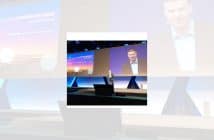Ibec has published its latest Quarterly Economic Outlook and is calling on Government to seek further flexibility in the EU fiscal rules in order to substantially increase investment expenditure in the next budget.
The business and employer association said massive spending cut-backs during the crisis years meant that Ireland was playing catch-up, but current EU rules placed inappropriate and unnecessary restrictions on investment. The outlook states that while sensible spending is required, substantial investment in areas such as transport, education and broadband are urgently needed. The group said the Government should allocate an additional €1 billion for infrastructure and innovation investment in the next budget, over and above the planned budget package of €1.5 billion.
Ibec Head of Policy and Chief Economist Fergal O’Brien said: “The Irish economy continues to perform very strongly, with GDP growth to exceed 5% this year. However we are hitting bottlenecks. We now need to invest ambitiously in the country’s future or our growth prospects will be damaged. EU fiscal rules are complex and while their principles are sound, their current application is unnecessarily restricting Ireland’s and other counties’ ability to invest.
“Irish business supports a sensible rules-based approach to the management of day-to-day spending and taxation, but capital investment projects should not be curtailed by these rules. Before it finalises plans for Budget 2016 Government should seek flexibility from the EU Commission for a further €1 billion investment in much needed infrastructure and innovation. Ireland will have the fastest growing population in the EU over the next 30 years, but investment spending is currently the third lowest. 70% of the expenditure reductions in the crisis years came from the capital budget and the investment shortfall is now €2.5 billion annually. The private sector has an important role to play, but Government must also invest much more.”
[rev_slider Surety]“The economy can grow by between 3% and 4% annually over the coming decades, but only if we invest wisely now. The day-to-day public finances have returned to a stable state, but under-investment in the economy’s productive capacity will leave more people unemployed for longer and will undermine quality of life. A well run business would clearly distinguish between ongoing running costs and capital expenditure, Government and the European Commission must do the same.”



